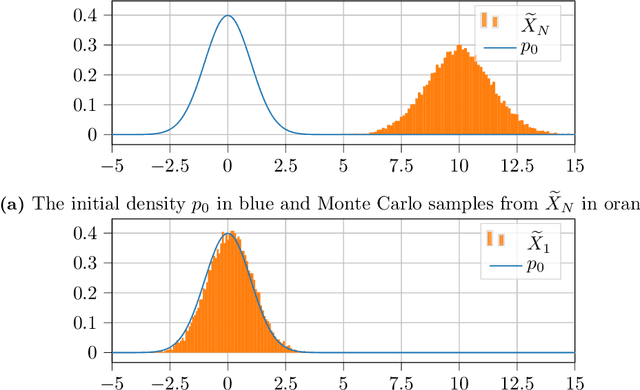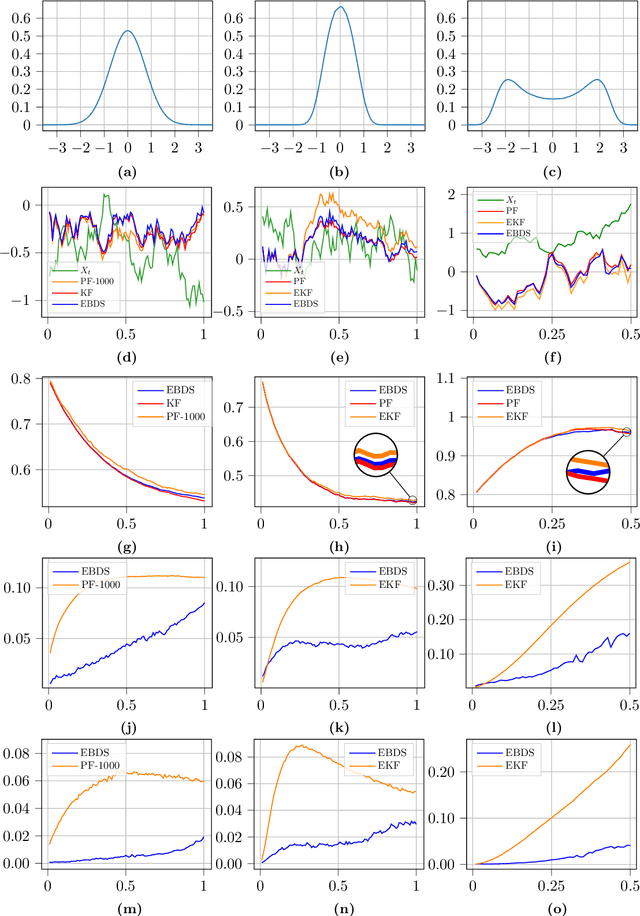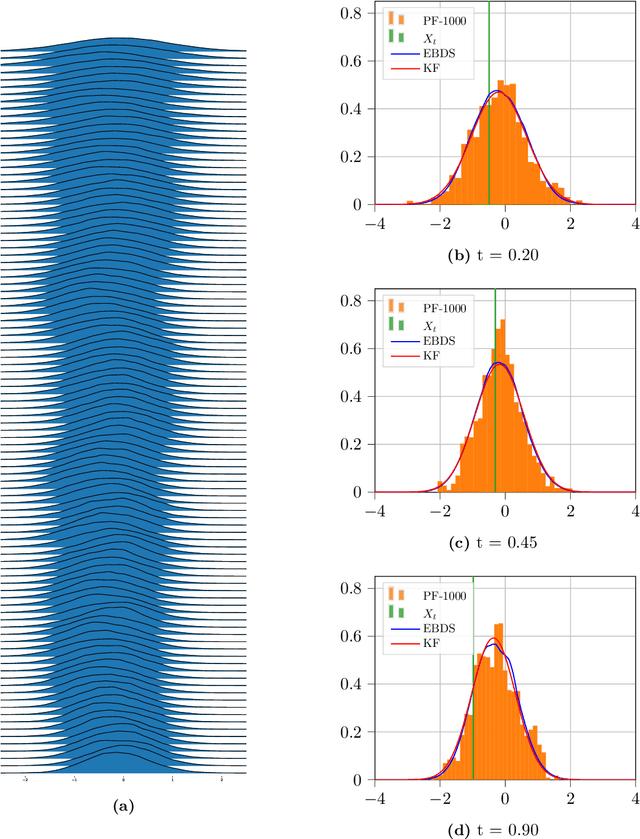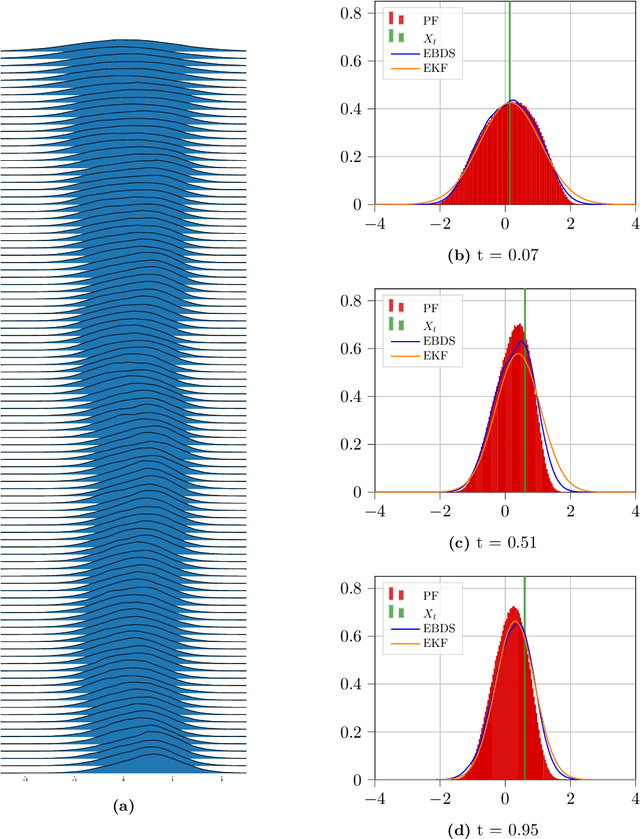An energy-based deep splitting method for the nonlinear filtering problem
Paper and Code
Apr 08, 2022



The purpose of this paper is to explore the use of deep learning for the solution of the nonlinear filtering problem. This is achieved by solving the Zakai equation by a deep splitting method, previously developed for approximate solution of (stochastic) partial differential equations. This is combined with an energy-based model for the approximation of functions by a deep neural network. This results in a computationally fast filter that takes observations as input and that does not require re-training when new observations are received. The method is tested on three examples, one linear Gaussian and two nonlinear. The method shows promising performance when benchmarked against the Kalman filter and the bootstrap particle filter.
* 20 pages, 5 figures
 Add to Chrome
Add to Chrome Add to Firefox
Add to Firefox Add to Edge
Add to Edge